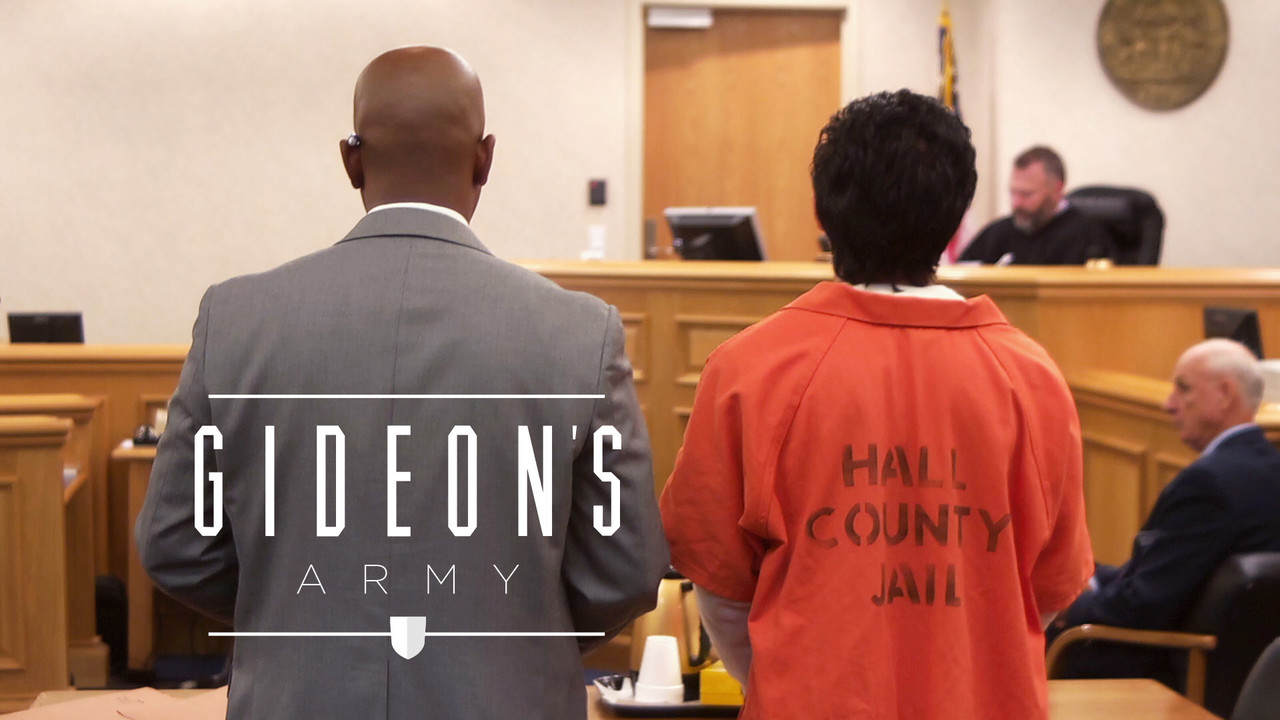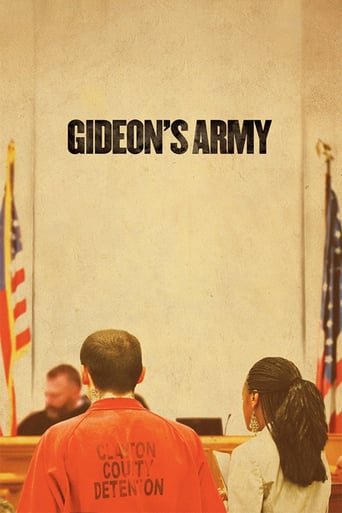IslandGuru
Who payed the critics
Dynamixor
The performances transcend the film's tropes, grounding it in characters that feel more complete than this subgenre often produces.
Salubfoto
It's an amazing and heartbreaking story.
Ginger
Very good movie overall, highly recommended. Most of the negative reviews don't have any merit and are all pollitically based. Give this movie a chance at least, and it might give you a different perspective.
sidney76
This is one of the finest documentaries I have ever seen and I have viewed many such films. It brought me to tears at numerous places. This documentary does what I believe only the very best documentaries do: it informs, it carries a powerful message, it inspires, it raises deep emotions and, most of all, it stays with you. It is a gift that keeps on giving. This is movie about heroes, unknown heroes. It is a film MADE by a hero. I congratulate and thank Travis Williams, Brandy Alexander and June Hardwick and wish them MUCH success in their vital work (and much higher and richly deserved compensation!). I congratulate and thank the filmmaker, Dawn Porter, and wish her continued success in HER vital work. I wish good luck and blessings to the men and women represented by the public defenders in the film and all across our nation. This is a magnificent film. I am grateful beyond words for the privilege of having viewed it. All I can say is "thank you" to everyone who made it a reality.
Turfseer
'Gideon' in 'Gideon's Army', refers to the famed 1963 Supreme Court decision, Gideon v. Wainwright, where all criminal defendants, however indigent, were granted the right to a criminal defense. 'Gideon's Army' focuses specifically on three public defenders in the states of Mississippi and Georgia and three specific cases assigned to them.In addition to these three cases, we also learn how the system is stacked against both the defendants and the public defenders who serve them. In all cases, it's basically a question of money. The state of Georgia is a particularly heinous example, when you can end up on $40,000 bail for shoplifting. June Hardwick, the Mississippi public defender highlighted (who subsequently left the profession) chronicles the case of a skilled mechanic who could have been placed in a pre-trial diversion program but ended up languishing in jail because she couldn't afford the $3,000 bail fee. Subsequently, this defendant lost all her tools and her home, while she had to remain in jail.In addition to the defendants' woes, the public defenders themselves face mounting debts from student loans. Their salaries are extremely low and their caseloads are astronomical. One feels a great deal of sympathy for these beleaguered public servants (all who are black) and seem forgotten by a system that depends on their hard work.The public defenders also are up against inflexible sentencing requirements which force them to invariably seek plea bargains, much to the detriment of their clients' rehabilitation. One of the Georgia public defenders, Travis Williams, defends a young man who was at the scene of a crime, where a knife was pulled by an acquaintance. He was facing 10 years minimum incarceration and a maximum sentence of life in prison and fortunately was able to plead down to Robbery by Intimidation. Williams wanted the Judge to give his client two years in the 'work house' but is given the maximum of 5 years incarceration plus probation by the hard-nosed judge.The other main public defender, Brandy Alexander, defends the rare case where she's able to get her client off. Charged with an armed robbery of a grocery store, the defendant is identified by a store clerk who claims he's seen him hanging around the store many times. But Alexander cogently points out that the clerk never gave a description to the police noting the defendant's multiple tattoos and braces on his teeth. The jury refused to accept the prosecutor's argument that this was an air-tight case.Also highlighted in the documentary is the Southern Public Defender Training Center, sort of a self-help group for public defenders. Indeed, the head of the organization, Jonathan Rapping, is perhaps the defenders' most vocal supporter. Rapping describes the system as "unjust, cruel" and "inhumane." While his support of public defenders is admirable, his support of the defendants as 'victims' of the system is skewed decidedly to the left. In contrast, some of Alexander's other tales are more sobering. She had one inmate charged with murder who she spent a lot of time with trying to help—only to find out later that the defendant told another inmate that he would kill her if he lost at trial. Another defendant bragged to her that he raped his 12 year old daughter.'Gideon's Army' ably highlights a criminal justice system that often is inflexible when it comes to sentencing of criminal defendants. It also makes a case for higher pay for these public defenders, who are burdened by incredibly large caseloads and student loans that will take them years to pay off. On the other hand, creator/director Dawn Porter may be a tad bit too sympathetic in her view of defendants as victims. The reality is that most of the plea bargains that defendants agree to, are justified, because they're guilty. Alexander's young man, who she got off, is the exception to the rule.Porter hits the mark when she argues for more flexibility when it comes to more leeway in regards to the laws and sentencing guidelines for defendants. Unfortunately, in certain states, such as in Georgia, you are going to find judges who can't understand that long prison sentences will only lead to chronic recidivism and little chance that the defendant will have any chance of turning his or her life around.
bob the moo
Gideon's Army is a commendable film; although I do not agree with the unquestioning universal praise it seems to have had from critics, I can agree to this – that for sure it is about a problem and it presents that problem by accessing this world through the experiences of a handful of Public Defendants working within the system. The film starts with the great principle that all people deserve the right to be defended in court even if they cannot afford to pay someone to do this for them; from here it then shows us the reality of this – the lawyers who make a very low wage and work an intense case load, the reality of the pressure to plead guilty and take the low jail time as opposed to fight for your innocence but risk losing and getting a longer time, etc.For me I was really already on side with this. I know there is always the temptation to assume that if someone is arrested and in court then they probably did something to justify that (particularly when the defendant is heavily tattooed), I know myself that this is not the case as I was once taken in on suspicion of terrorism and then charged with offensive weapons mainly because I was in possession of a Northern Irish accent and in the wrong place at the wrong time (2 court dates over 6 months but ultimately totally acquitted). I also knew, thanks to another documentary, that in the US, "jail" is not just another word for prison but is a place where the accused (not guilty) are sent when they cannot afford the bail – perhaps for 4 months, perhaps for years while their court case slowly proceeds; so I already understood that the system is pretty unfair for those without the resources available to them.The film adds to this impression by showing the reality of their "right to a fair trial". This right involves jail time in absence of bail, a lawyer working on low money and their nerves, and the pressure to plead out regardless. The film does a fairly decent job of showing this but not enough. I didn't feel gutted by the reality as I should have done and I didn't feel that the film managed to make the link from the examples in the film up to the bigger picture. What it does well is to show us some specific people working hard within a flawed system and gives them credit for what they try to do – they are the Army of the title so I guess it makes sense that the film does feature them, but I did feel it loses something by how it does it.The system is broken but instead I watched idealistic (mostly) people working in this field. The film brushes over the fact that statistically these "perfect models" will burn out like the majority do, and focuses on their struggle - not LOSS, but struggle. By ending the film with a victory it also damages the bigger picture point – it still makes it, but it damages it. I would have found the film much more effective if it had condemned the system rather than holding up the good examples, but I guess this was its focus all along, so it is a little unfair of me to judge it for this – it did what it set out to do well enough, but I think a greater service would have been performed had it had a sharper aim and focus.Very good for what it sets out to do – but it really should do so much more with this subject.
Terry McGhee
Gideon's Army is a documentary film that tears the rusted lid off of the justice system to expose the hidden truths behind why Lady Justice wears a tear stained blindfold.Dawn Porter is the founder of Trilogy Films and along with Motto Pictures and HBO Documentaries they follow the lives of three Public Defenders who give everything they have to strive to prove that a person accused of a crime shall indeed be held innocent until proved guilty in a court of law. Travis Williams, Brandy Alexander and June Hardwick confirm the nightmares that anyone who has ever served as a juror knows first hand, that our justice system is flawed, and that the assumptions of guilt can quite easily be the downfall of the innocent.The film deals heavily with the morality of personal struggle and in no way, shape, or form does it endorse or celebrate the protection of the heinous criminals who feed like parasites off of the dedication and hope of those who are there to attempt to counter balance the heavily laden scales of justice to give everyone a fair fight in court.It is far too easy for those who have never experienced the cold hard glare of the American Justice System to sit back and assume that all is well, and that no person can be found guilty unless they are guilty. I mean, they must have done something to be arrested in the first place, right? Wrong! Gideon's Army is the gavel slamming hard against the well oiled and waxed table top of preconceived notions. Before you find yourself in front of a judge in a court of law as a defendant you should know just how stacked against you the deck truly is. Gideon's Army will give you a glimpse of the horrors that await, and also show you that through dedication and hard work, there are indeed a small group of people out there who are fighting just as hard as you are to keep you innocent until proved guilty.

